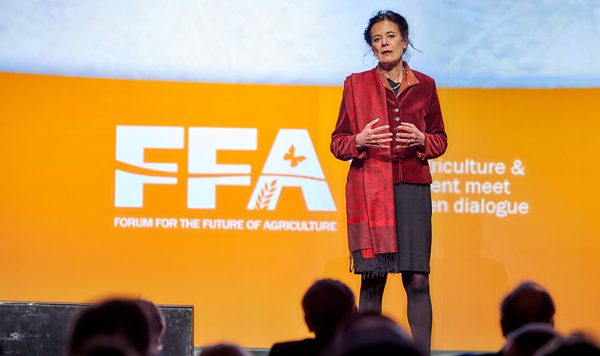2018 post-event blog 7:
Agriculture and food: the future
Sunday, May 13, 2018
Louise O. Fresco, President of the Executive Board, Wageningen University & Research, presented the audience with a major conundrum. Farming is providing more diverse and safe food more cheaply than ever before, but there is deep public unease about food, agriculture and the environment. “Food has become a source of worry,” she said, pointing to an even more fundamental development. “Trust in science, and not just in science, in governments, government policy, private sector, even farmers seems to be eroding.”
This growing distrust is taking shape as climate change forces society to move towards a post-fossil world where the most importance resource will be biomass from agriculture and forestry and, to some extent, the marine and aquatic environments. In addition to producing the biomass necessary for food, feed, fuel and chemicals, global agriculture will have to feed a further two billion people and help improve the livelihoods of millions of (small) farmers.
Faced with these challenges, Professor Fresco acknowledged that her greatest concern was the lack of trust in science’s ability to provide answers. “That feeling needs to be countered because whichever way we turn, the future will need scientifically based solutions,” she said. In the past, little thought had gone into investigating unintended side effects of scientific developments. But today, there is far greater awareness of the need to use science in a highly responsible way and she urged scientists to come out from the ivory towers where they had been too long.
To break the current stalemate between scientific solutions and societal reticence on many issues, “we have to tackle things differently,” she stressed. Specifically, she called on the EU to start work on an international UN agreement on food and agriculture. This would draw on the climate change experience by establishing an intergovernmental panel of experts on food and agriculture (IPFA).
“I believe that only by building scientific consensus and showing the options and scenarios to society at large and to politicians can we move forward,” she explained. The initiative would require an “openness of mind and a way of thinking that may be quite different from what we are used to,” she added.
To watch videos from FFA2018 click here >


